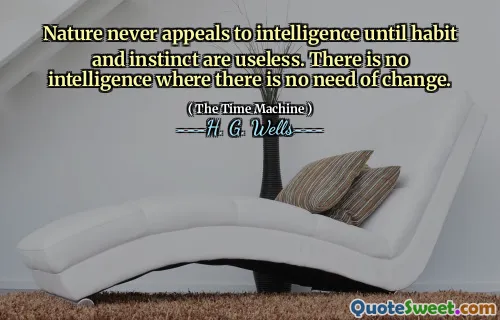
I think that at that time none of us quite believed in the Time Machine. The fact is, the Time Traveler was one of those men who are too clever to be believed: you never felt that you saw all round him; you always suspected some subtle reserve, some ingenuity in ambush, behind his lucid frankness. Had Filby shown the model and explained the matter in the Time Traveller's words, we should have shown him far less skepticism. For we should have perceived his motives; a pork butcher could understand Filby.
The narrator reflects on a time when they found it difficult to accept the Time Traveler's invention. He describes the Time Traveler as extremely intelligent, to the point that his cleverness inspires doubt rather than trust among his peers. They felt there was always something more beneath his explanations, and this led to skepticism about his claims. If someone else, like Filby, had presented the idea, their understanding would have been clearer, and they would have been less doubtful about the machine's existence.
This highlights the nature of belief and how personal credibility can influence perceptions. The group’s initial disbelief was rooted in their inability to fully grasp the Time Traveler's intellect and intentions. The narrator suggests that simpler explanations might have been more readily accepted, indicating that familiarity and straightforwardness can often bridge the gap in understanding complex ideas.









